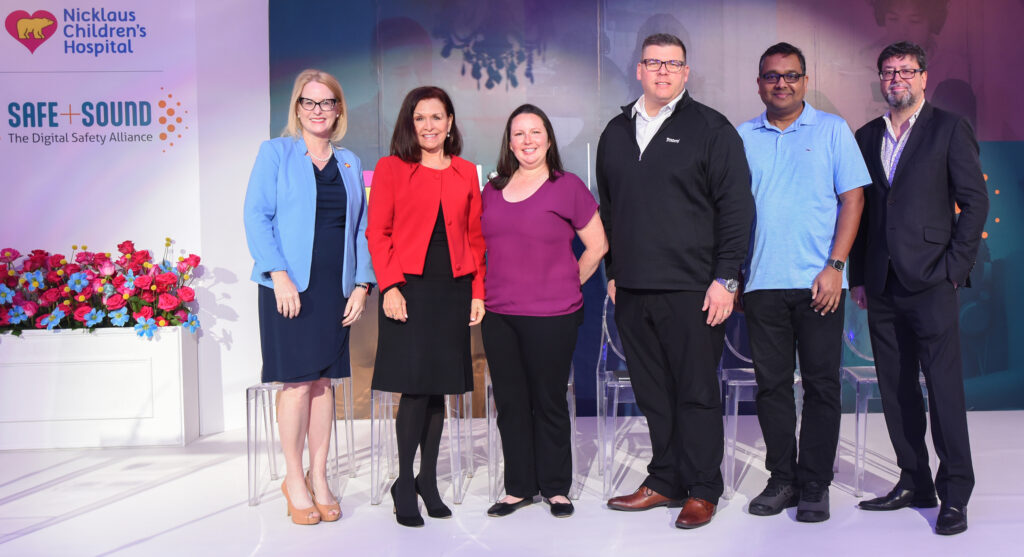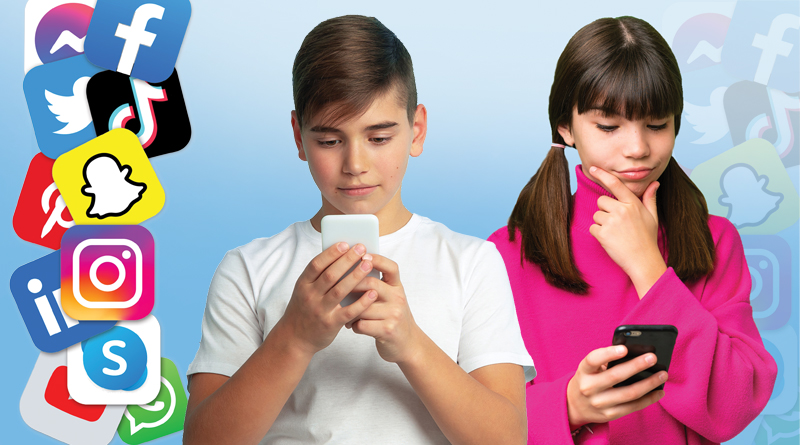Controversy on social media banning for kids under 16
By: Diana Bello Aristizábal
On January 24, the Florida House approved House Bill 1 aimed at restricting the use of social media in kids under 16, which would require social media platforms to terminate existing accounts of said population and delete its information, as well as prevent them from creating new accounts, and use age verification methods. The measure has caused controversy, although at the time of going to press, it had not passed in the Senate.
A social network is understood to be a platform that allows users to upload content or view it when published by others. It covers companies that can track the activity of their users, such as Facebook, Instagram, or X. Considering the above, supporters of the bill argue, first and foremost, that social media is terribly addictive.

Its features and the algorithm behind them lead users to get hooked compulsively, impacting their mental health, especially in minors. They also argue social media companies are more interested in creating revenue and engagement rather than in investing in security and privacy, putting kids constantly at risk.
According to data provided by Nicklaus Children’s Hospital, social media has been linked to increased mental distress, self-injury, and suicidal thoughts among youth, with greater effects observed among girls. In addition, excessive screen time has been linked to negative impacts on various developmental domains, including language, cognitive development, and emotional maturity.
On the other hand, using social media exposes minors to dangerous situations. According to research of 2021 conducted by Dickenson and Snedeker, 40% of children in grades 4-8 have admitted to having engaged with strangers online.
Another threat, which also was used as an argument by sponsors of the bill approved in the house with a 106-13 vote, is cyberbullying and the fact that social media technology makes children targets for sexual predators.
But despite these arguments, detractors question the constitutionality of the bill by stating that it infringes on First Amendment and parents’ right to decide whether or not their children should use social media since companies would have to restrict access to kids under 16 regardless of parental consent.
About the opinion of social media companies and in the midst of the ban controversy, Meta, the parent company of Facebook and Instagram, announced in mid-January a series of new safety measures that include restricting private messages from strangers and instituting new parental controls. However, this same company said regarding the bill that parental consent should be enough to allow children access to social media.
Is banning the right approach?
“In 2010, we began seeing more anxiety and depression just when digital platforms started to become more popular. Then, the pandemic came and with it an emotional tsunami, maybe we didn’t raise our voices loud enough to talk about what was happening,” said Dr. Marisa Azaret, Clinical Director, Department of Psychology, of Nicklaus Children’s Hospital at the Digital Safety Alliance Safe+Sound launching.

This initiative, in collaboration between Nicklaus Children’s Hospital, the Digital Health Institute for Transformation (DHIT), along with other stakeholders and corporate leaders, seeks to empower parents with information and resources (through a campaign and a website) to combat the potential dangers associated with children’s use of electronic devices because yes, it is a fact, as a society we have a problem.
“What research says is that around 68 percent of adults realize they have a problem with social media and their cellphones. They constantly tell me that despite knowing this, they lack the tools or the answers to solve it,” Dr. Azaret added during the event.
Children also perceive that things are not going well, since, according to the specialist, 72 percent of them know they are walking on quicksand; They know they don’t sleep well, interact enough with their peers or exercise enough, they just don’t know how to change that reality. “That’s why the message I want to leave parents is to look themselves in the mirror, explore the relationship they have with the digital world and set rules.”
But, regardless of the damage social media usage can cause and the fact that a child’s brain is affected when subjected to the dynamics of instant gratification, is banning really the right approach to follow?
“I read the bill, and I’m not convinced. I fear all the weight would fall on banning without widening the angle and seeing all the other components involved. Nothing replaces the dialogue between a parent and its child, so the weight should fall on educating and talking about how the issue could be addressed,” adds Dr. Azaret.
She also says banning would encourage kids to find a way to access social media. “There are other factors that impact a child’s development, digital platforms are not the only ones responsible. What minors need is a balance: time to play, to practice sports, sunbathe, and be with their family.”
 Lee Phillips, co-founder of the Digital Health Institute for Transformation, DHIT, and father of two, has a similar view. “At the Digital Safety Alliance, we are not necessarily advocating a stance towards banning. However, the good thing is that is bringing the conversation about the dangers of social media to the forefront.”
Lee Phillips, co-founder of the Digital Health Institute for Transformation, DHIT, and father of two, has a similar view. “At the Digital Safety Alliance, we are not necessarily advocating a stance towards banning. However, the good thing is that is bringing the conversation about the dangers of social media to the forefront.”
But, in his opinion, just banning may not bring any benefit. “Creating a ban is easy, putting it into practice is something else. The important thing here is to make them aware of the risks they face and to put pressure on social media companies so that they, for example, restrict access to certain inappropriate content.”
In the meantime, there’s the option of buying safe smartphones like those offered by Troomi, an operating system that provides children with an experience free of social media and the associated problems, such as stalking or inappropriate content.
“It’s perfect for parents who want to give their children a smartphone for the first time, it works through Samsung and allows them to control all of their children’s digital activity, including phone numbers they save that only become active when parents give the go-ahead,” says Bill Brady, CEO of Troomi, a partner company of the Digital Safety Alliance.
Regarding the bill, as a father of five, he agrees with its approval. “The fact that the government has gotten involved in the issue to demand regulation of the platforms reflects the seriousness of the problem.”
Given this scenario and the lack of clarity about how it would be executed if it were to become law, opinions continue to be divided with some parents supporting the measure and others rejecting it.

